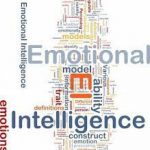The Intelligence of Emotions
 More than 2000 years ago Aristotle said “Anybody can become angry – that is easy, but to be angry with the right person and to the right degree and at the right time and for the right purpose, and in the right way – that is not within everybody’s power and is not easy.”
More than 2000 years ago Aristotle said “Anybody can become angry – that is easy, but to be angry with the right person and to the right degree and at the right time and for the right purpose, and in the right way – that is not within everybody’s power and is not easy.”
Since then scientists, researcher, philosophers and others try to assess the importance of feelings. For the majority of that time, the common belief was that emotions are destructive and stand in the way in making good decision. However, in the last few decades, a growing body of research is proving just the opposite – that emotions do serve us well and if used properly have a substantial value.
In their article “emotional intelligence,” produced in 1990, Jack” Mayer and Peter Salovey defined Emotional Intelligence as “the ability to perceive emotions; to access and generate emotions so as to assist thought; to understand emotions and emotional knowledge; and to reflectively regulate emotions so as to promote emotional and intellectual growth.”
While the various models of emotional intelligence structure the concept in different ways, all are concerned with the goal of integrating thinking, feeling and behavior or integration of emotion, reason and action to live more effectively.
Antonio Damasio, In Descarte’s Error, explained how emotions create people’s sense of identity and guide rational decision making. Later, in his book, The Feeling of What Happens, he added that our sense of being aware and conscious comes from our emotions.
Other investigators, such as Candace Pert went even further. In her book the Molecules of Emotion, Candance suggests that information processing is done throughout the body through sensations, intuition, feelings, ideas and maybe even spiritual impulses. In other words “thinking” takes place not only in the brain but all over the body. While the brain has the most processing power, the body as a whole provides its input and helps drive its information and processing system.
Emotions are electro-chemical signals in our brains and also in our body and flow through us in an never-ending cycles. They effect our brain, our body as well as our internal systems such as breathing, blood circulation, digestive system etc. Atonio Damasio said “Emotions are embodied.” They are integral part of our body.
The intelligence of emotions can help you:
- Taking full responsibility for your emotions and your life
- Using emotions as a guiding system to your well-being
- Indicating your position in regards to your needs
- Attending to the present moment while having more fulfilling life
- Cultivating gratitude and compassion while contribute to a better world
- Recognizing your own emotional state and the emotional states of others
- Establishing healthier boundaries and constructively dealing with difficult events
- De-escalating conflicting situations and enhance positive energy in relationships
- Transforming and shifting negative energy of uncomfortable emotions to positive energy.
- Expressing negative emotions constructively while consciously moving on to a more stable state
Please visit spiral2grow author, Moshe Ratson at his Google+ Profile: +Moshe Ratson





